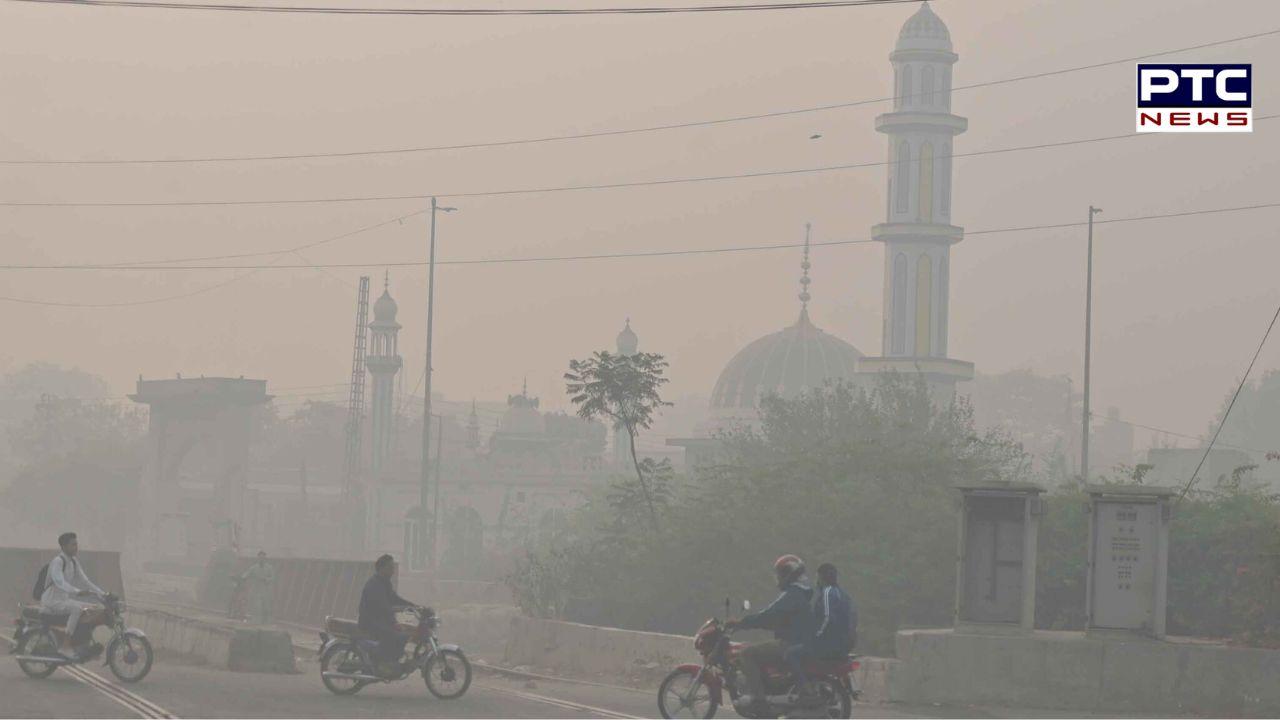Pakistan choked: Multans AQI crosses 2,000-mark; Punjab closes schools, amusement parks and museums amid hazardous smog levels
Health officials are warning of a sharp rise in respiratory illnesses in cities like Lahore, Multan, Kasur, Sheikhupura, and Gujranwala

Pakistan choked: The Punjab government in Pakistan has announced a 10-day closure of amusement parks, museums, and schools across multiple districts from November 8 to 17 due to hazardous smog levels. The restrictions, which were implemented on Friday, affect areas such as Lahore, Gujranwala, Faisalabad, Multan, Sheikhupura, Kasur, Nankana Sahib, Gujarat, Hafizabad, Mandi Bahauddin, Sialkot, Narowal, Chiniot, Jhang, and Toba Tek Singh, along with Lodhran, Vehari, and Khanewal.
Multan, the largest city in southern Punjab, reported an alarming Air Quality Index (AQI) reading of 2,135 between 8 am and 9 am on Friday, as per Swiss air quality monitor IQAir. The PM2.5 concentration, which is harmful to health, reached 947 micrograms per cubic meter, far exceeding the World Health Organization's (WHO) safe limit by 189.4 times. By 10 pm, the AQI in Multan surged to 980, which is more than three times the “hazardous” threshold of 300.
Three air quality monitors located at the WWF-Pakistan Office, Shamsabad Colony, and Multan Cantonment also recorded extremely high AQI readings of 2,316, 1,635, and 1,527, respectively, at 10 pm.
In response to the poor air quality, the Punjab education department has mandated the closure of all private and public tuition centres and schools, including those up to the higher secondary level, in the affected districts until November 17. This was confirmed by a government notification.
Pakistan experienced a sharp increase in air pollution on Friday, with seven cities ranking among the most polluted globally. Meteorologists have predicted that the smog is expected to worsen, with wind speeds falling to 11 km/h in Lahore and 7 km/h near Multan. The AQI in Lahore reached 676, while Multan recorded a staggering 2,135. Other cities such as Peshawar, Islamabad, Haripur, Rawalpindi, and Karachi also reported hazardous air quality.
Lahore, Pakistan's eastern metropolis, has been severely affected by toxic smog, leading the authorities to restrict outdoor activities and set up a special panel to address the issue. On Thursday, Lahore topped the global pollution charts with an AQI of 784, and on Wednesday, the city’s AQI reached an alarming 1,165, over 120 times higher than the WHO's recommended levels.
Health officials are warning of a sharp rise in respiratory illnesses in cities like Lahore, Multan, Kasur, Sheikhupura, and Gujranwala, as a result of prolonged exposure to the hazardous air. The situation has made daily life challenging for residents, and health experts are advising people to wear masks when outdoors to protect themselves from the harmful effects of the smog.


